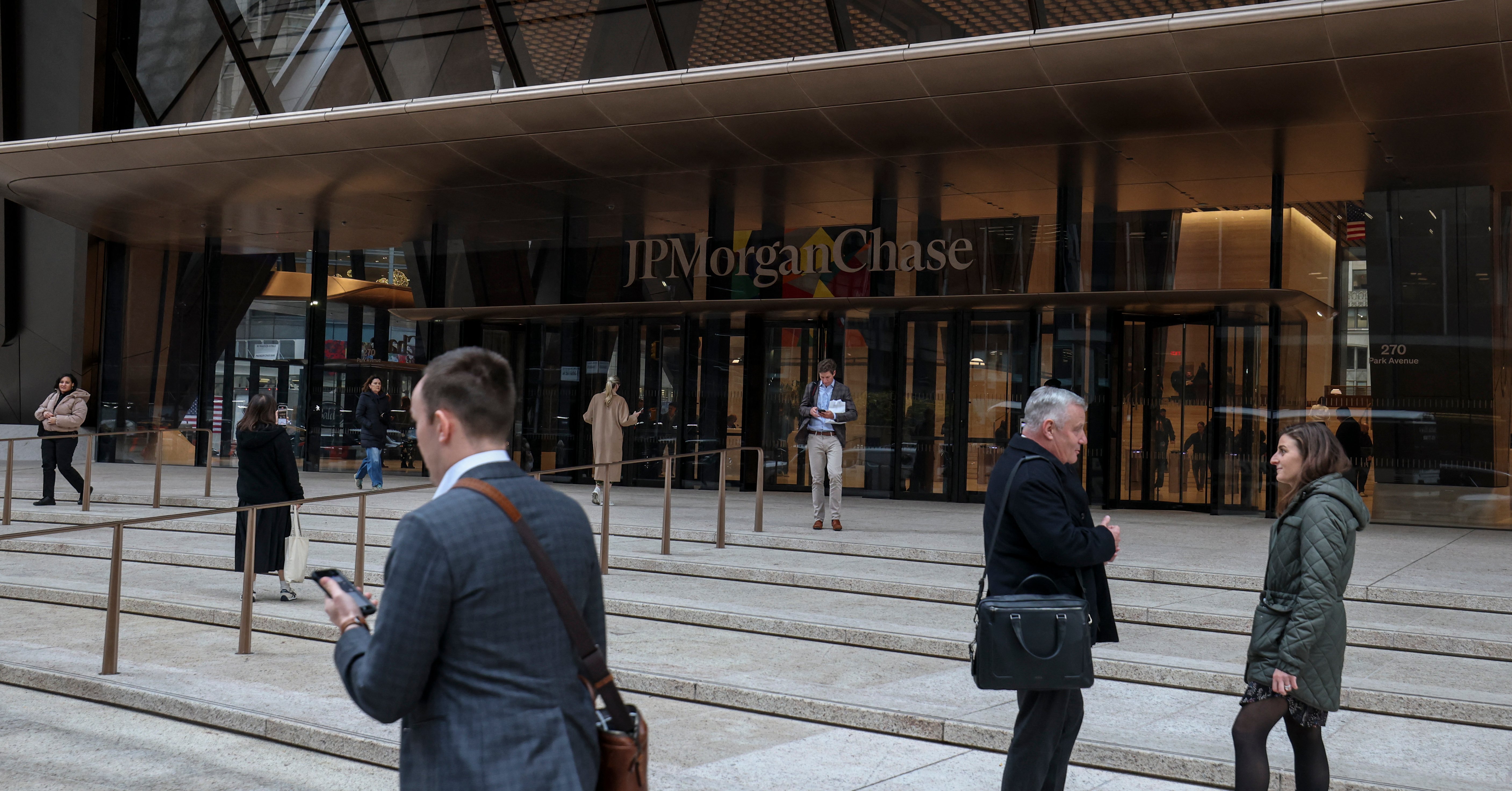#return to office
#return to office
[ follow ]
#return-to-office #remote-work #hybrid-work #productivity #remote-work-policy #layoffs #company-culture
Fashion & style
fromBusiness Insider
21 hours ago'Dress for the job you want' is dead. Now, it's 'dress for the job you want to keep.'
Workwear is shifting from pandemic casualness toward smarter, polished styles as employees dress to signal competence and protect job security amid tighter job markets.
Real estate
fromwww.cbc.ca
1 week agoAfter years of uncertainty, Toronto's commercial real estate market looks ready to grow | CBC News
Toronto's commercial real estate market is stabilizing with leasing outpacing vacancies, availability falling, and investment rising as banks and public-sector workers return to offices.
Remote teams
fromAol
2 weeks agoWorkers Are Nostalgic For The Great Resignation When As Long As 'You Had A Pulse' You'd Be Hired Remotely And With Huge Salaries
Workers gained significant leverage during the pandemic through remote roles, higher pay, and recruiter demand, but layoffs, inflation, and fewer remote openings have eroded that advantage.
Remote teams
fromMiami Herald
2 weeks agoSolving for burnout: 7 strategies to enhance workers' mental health and productivity in 2026
Workplace loneliness and burnout substantially reduce productivity and cost companies billions, requiring hybrid policies and employee-support strategies to restore connection and engagement.
fromBusiness Insider
2 weeks agoHome Depot is laying off 800 employees and bringing staff back to the office 5 days a week
The layoffs affected positions at the home improvement chain's store support center near Atlanta, a company spokesperson told Business Insider. "We're simplifying our corporate operations to better support our stores and our customers," the spokesperson said. "Our goal is to drive greater agility and position the company to move faster and stay even more closely connected with our frontline associates." Home Depot is offering affected employees separation packages and other support, the spokesperson added.
Business
fromAbove the Law
3 weeks agoBiglaw's Return-To-Office Push Is Showing Up In Law Firm Real Estate Deals - Above the Law
Law firms took nearly 800,000 square feet of New York City office space in Q4 2025, according to data provided to Law.com, with firms including Kirkland & Ellis, Goodwin Procter, and McGuireWoods expanding their Manhattan footprints. Gibson Dunn and Baker Hostetler renewed in place, underscoring that firms are holding onto - and adding to - their office space, not shedding it.
Real estate
fromKOMO
1 month agoRedmond small businesses prepare for economic boost as Microsoft ends remote work
When large companies require employees to end remote work and return to the office (RTO), the effects typically ripple through local economies and nearby small businesses. There can be more foot traffic and spending at restaurants, cafés, and coffee shops as office workers take lunch breaks or visit shopping districts before or after their shifts. Convenience stores, dry cleaners, food trucks, and gyms can also see an uptick, leading to improved weekday sales and a steadier cash flow.
Business
fromBusiness Insider
1 month agoCosmetic surgery used to be private. At work, it's becoming small talk.
When Jennifer Vaughan, 55, returned to work as a substitute teacher after her facelift, nobody said anything outright. Vaughan worried, "God, is it not enough of a difference that somebody isn't asking?" However, there were signs her coworkers were just being polite. One teacher did a double take and stammered their way through asking if something had changed. She told a few other teachers, and said, "They were like, 'Okay, I thought something was up, but I wasn't totally sure.'"
Wellness
fromBusiness Insider
1 month agoAmazon gives managers a new way to spot who's barely coming into the office
Amazon is equipping its managers withpowerful new metricsto monitor their reports with a dashboard that tracks not only whether employees show up to the office, but also how many hours they spend there, according to an internal document obtained by Business Insider. The move marks an escalation in the surveillance of white-collar workers at the e-commerce and cloud computing giant.
Business
fromThe Walrus
1 month agoWelcome Back to the Office. You Won't Get Anything Done | The Walrus
I was twenty years old and a college student, which meant that I was quite useless. I found out that it was one kind of torture to do pointless work for two or three hours a day-usually, producing research memos that no one read-and then another kind of torture to figure out how to do nothing until it was acceptable to leave the office at 5 p.m.
Careers
fromgizmodo.com
1 month agoTech Companies Show Feet as They Try to Appeal to Gen Z
Over the last year or so, Silicon Valley made an all-out push for employees to return to the office. Now that the industry has people back at their desks, it's trying to figure out how to make them happy. The influx of office dwellers, including a growing number of Gen Z representatives, has the Valley trying new things, like shoeless offices.
Startup companies
fromwww.cbc.ca
1 month agoTTC ridership numbers dropped this fall despite return-to-office policies: document | CBC News
Despite employer policy changes in Fall 2025 requiring more in-office workdays, no significant ridership increase has been observed. In fact, Fall 2025 ridership slightly declined versus expectations,
Canada news
fromMiami Herald
2 months agoThe 'Sick Building' Syndrome: Indoor air quality services and employee productivity
However, one overlooked impact of return-to-work policies is that they do not account for air quality issues in commercial buildings, The Way Commercial Cleaning notes. This trend, dubbed sick building syndrome, can be detrimental to employees' effectiveness once they get back into the swing of sharing office space. Once understood, it explains why indoor air quality services are increasingly in demand.
Public health
fromGameSpot
2 months agoNaughty Dog's Intergalactic Aiming For Mid-2027 Release Amid New Crunch Allegations - Report
They're gonna work very hard. We need to put some guardrails [in] so they don't injure themselves, but I don't think we could prevent them from working hard and still make the kind of games we make.
Video games
fromKotaku
2 months agoNaughty Dog Is Reportedly Crunching Again For Intergalactic
Bloomberg reports that Naughty Dog has had developers working mandatory overtime as it races to complete a demo of the sci-fi action game for Sony to review, despite a planned release date that's still years away. The mandatory overtime reportedly began in October, with staff being asked to work a minimum of eight extra hours a week and logging them on an internal spreadsheet.
Video games
fromBusiness Insider
2 months agoTikTok is planning a big 5-day RTO push next year
The company has told US staffers across several large divisions that they will need to return to the office five days a week next year, two affected workers told Business Insider. The return-to-office push, which kicks off in September, will affect US employees across a wide set of roles, including staffers who work on advertising sales, marketing, and product, the employees said.
US news
Artificial intelligence
fromFortune
2 months agoGoogle cofounder Sergey Brin said he was 'spiraling' before returning to work on Gemini-and staying retired 'would've been a big mistake' | Fortune
Sergey Brin returned from retirement to lead and influence Google’s AI work, advocating frequent office presence and longer hours to boost productivity and innovation.
[ Load more ]





















